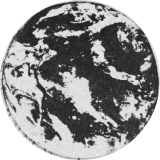Henri Lefebvre’s three-volume Critique of Everyday Life is perhaps the richest, most prescient work by one of the twentieth century’s greatest philosophers. Written at the birth of post-war consumerism, the Critique was a philosophical inspiration for the 1968 student revolution in France and is considered to be the founding text of all that we know as cultural studies, as well as a major influence on the fields of contemporary philosophy, geography, sociology, architecture, political theory and urbanism. A work of enormous range and subtlety, Lefebvre takes as his starting-point and guide the “trivial” details of quotidian experience: an experience colonized by the commodity, shadowed by inauthenticity, yet one which remains the only source of resistance and change.
*The above link is an affiliate link. When you purchase through our affiliate links, we earn a small commission at no extra cost to you. Thanks for your support! Learn more
NEC's view
Critique of Everyday Life is a book that changed how we think about the ordinary. Henri Lefebvre argues that daily life is not neutral or insignificant, but the very terrain where capitalism, bureaucracy, and power take hold. It is in the small routines—commuting, shopping, resting, talking—that the structures of society reproduce themselves.
What we love about this book is how it takes the mundane seriously. Lefebvre insists that transformation does not only happen in moments of rupture or revolution, but also in how we live the everyday.
Critique of Everyday Life continues to feel indispensable for anyone trying to understand how systems are sustained, and how they might be undone.










